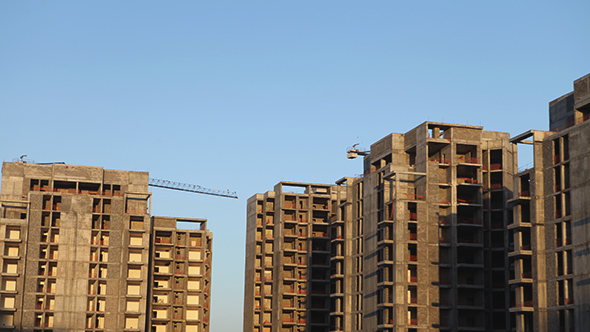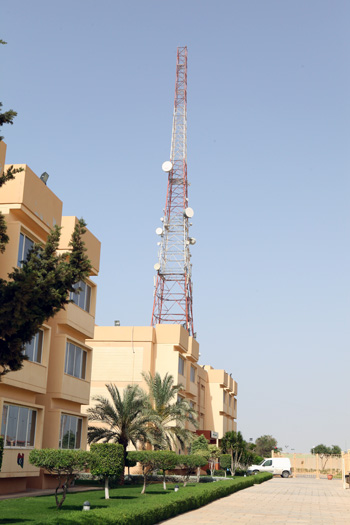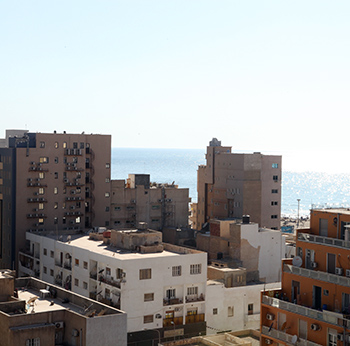Libyan infrastructure sector to meet local demands and set conditions for foreign businesses
Libya Sector Analysis
Libyan infrastructure sector to meet local demands and set conditions for foreign businesses
Libyan infrastructure sector needs a makeover to meet local demands and set conditions for more foreign business locating operations in the new nation.

Libyan infrastructure sector to meet local demands and set conditions for foreign businesses
By TK Maloy
TRIPOLI – Looking at Libya’s infrastructure – its transportation, telecoms, broadband, electrical power and water sectors – the issue is not just fixing what might have been damaged during the rebellion, instead there is both an impetus to repair but also to build out an improved infrastructure as the country is reopening itself to foreign business and increased business and industrial activity domestically.
Many officials and persons from private industry say there is a pent-up up demand for all the above, which was thwarted during the dictatorial inefficiency of the Gaddafi years.
Before the upheaval of the revolution, the regime had budgeted up to 2012, $89 billon toward investment The large-scale projects began – but not completed – include an upgrade of ports, airports and national roadways to comprehensively connect the eastern and western half of the country; the construction of a new railway and a Tripoli metro system.
A key issue in moving forward with the restart of previous projects are the outstanding payments owed to foreign contractors – considerable funds reaching into the multi-billions. The government is in the process of renegotiating many of these contracts, such as the February promise by Prime Minister Ali Zeidan to pay Turkish companies $10 billion owed and tranche payments going forward if the companies restart stalled projects.
“We want to promote the private sector, we want to make sure that this telecoms law is up to the international standards and we want to make sure there is an independent regulator because the monopoly from the previous regime was very strange and decisions were being made and licenses given all from the same place.”
Telecoms
In post-rebellion Libya, the telecoms are up and working and more fiber optic linkages are being established to improve efficiency for voice and data. However, policy makers ultimately want to see the telecoms entities devolve from state ownership to private companies.
With the overthrow of the Gaddafi regime, already a great change has taken place with a type of organic liberalization as the telecoms sector is free of the corruption and nepotism that was rampant during the old regime.
“We want to promote the private sector, we want to make sure that this telecoms law is up to the international standards and we want to make sure there is an independent regulator because the monopoly from the previous regime was very strange and decisions were being made and licenses given all from the same place,” said Usama Siala, Minister of Communications and Informatics of Libya.
Currently a draft law reforming the telecoms sector is in the hands of the General National Congress, but the timetable for enactment is uncertain.
More the than US$1 billion worth of telecoms infrastructure was destroyed during the rebellion, also including about 20 percent of Libya’s cell sites.
Assessing the post-rebellion service level of the telecoms, Siala said “If you look at them (two main mobile companies) as separate networks, Almadar has recovered about 95 percent of its pre-war status, and Libyana has recovered about 97 percent.”
“The only problems we are facing right now are from some very big towers that were destroyed and will take time to rebuild; also we have some theft occurring in some remote areas where people have been stealing some of our solar panels, but that is it, we are almost back on track.”
Looking at the amount of investment that the government has put into improving service and telecoms infrastructure, Siala said that for Libyana the ministry estimates expenditures of around 230 to 250 million LYD, with a similar amount being spent to modernize Almadar.
“Before the war the network was fragmented, there were different vendors in different areas with no real logic or consideration of the country as a whole. We are going to modernize the whole network: core, billing, value added services, radio and transmission,” the minister said.
“When it comes to fiber, we are almost done, most of our projects are back on track, and some of them are 60 percent or 70 percent completed so there are no major contracts in fiber yet. In the wire line we are going to start some pilots for FDT (Fiber Distribution Terminal) fiber to the home technology, we are going to invite three or four of the major vendors, give them certain areas and set them some KPIs (Key Performance Indicators) and if they reach these KPIs we will buy the service from them,” Siala said.
He added that based on the technology and the experience gained from this rollout of fiber to the home the government will start expanding this technology.
“This will be a huge project, just the civil work we expect to cost one billion Libyan dinars, to connect fiber to every single home. I do not expect this one billion Libyan dinars to be spent during this coming year or two; it will be spent over five years,” Siala said. “We cannot just go around putting fiber cables in everywhere, but wherever there is a new property development we will install them, or wherever there is a business project they will also be installed, thus we will prioritize our spending in this area.”
Housing Sector
Business Monitor International noted in a report on post-war infrastructural needs, that replacement of destroyed housing was a top priority added to by a large housing shortage that existed before the war.
Some of the immediate projects launched to relieve the pent-up demand for housing include contracts for the construction of 2,500 prefabricated homes in Sirte, a key Libyan city, damaged heaving during the fighting.
Also, Libya’s Housing and Infrastructure Board (HIB) authorized 248 contracts for repairs to public housing in Tripoli and Benghazi, mid-2012, including a further 4,000 small contracts awarded in the second half of 2012.
The BMI report noted that “more long-term solution will require the resumption of large housing projects that were underway before the war.” The HIB has signed contracts for work to resume on three housing projects in Tripoli worth LDY 1.1 bn.
Conclusions
Ryad Sunusi, President & CEO of the privately-held Phoenicia Group and a prominent Libyan businessman and consultant, sees great opportunities for international companies in the infrastructure and construction sector in Libya and strongly encourages global businesses to take advantage of the new opportunities being offered.
Phoenicia is a US-Libyan business consultancy.
In a statement, Sunusi said, “Libya is clearly going to be a construction hotspot for the next few years, as the Libyan government has wisely given the infrastructure and railway project national priority and a significant budget.”
Sunusi also highlighted other infrastructure projects slated for tender, saying “Libya needs 450,000 housing units in the next decade to keep up with its rising population.”
The consultant noted several of the projects earlier cited by the transportation minister.
“Six Billion USD will be earmarked for water and sanitation projects, and 2,000 kilometers of road infrastructure will be renovated under the plan, as well as construction of an additional terminal at Tripoli International Airport and the construction of a brand new airport in Benghazi,” the Phonecia chief said.
Sunusi added, “There has been tremendous interest shown in the infrastructure plan.
During a May press conference kicking off the launch of Libya Projects 2012, Deputy Prime Minster Award Ibrahim Elbarasi told Libya press that the massive infrastructural investment will help underpin the double-digit economic growth for the new Libya.
US International Trade Administration official Diane Jones, senior commercial officer in Tripoli, said in set of remarks published by the ITA, “There’s just a huge boom in infrastructure development in Libya. I think you can imagine that, after 30 years of sanctions, all of the roads, housing, and commercial areas are run down. With the oil wealth, the country has decided to really invest in infrastructure. Most companies that we’ve been working with right now from the United States are established construction, engineering, and architectural firms.
Cited figures from the International Monetary Fund (IMF), which forecast Libya’s economy growing by 16.5 per cent in 2013, the Libyan deputy prime minister also announced the country’s plans to host the upcoming African Cup of Nations (CAF) in 2017, for which the government has earmarked LYD 400 million (USD $312 million) for exclusive spending on the CAF this year.
“Our ageing infrastructure needs a radical overhaul. We devised a projects program that will develop and modernize critical infrastructure, energy, utilities and industry sectors to boost the economy. Stability and economic diversification are high on the agenda of the government and we are laying the groundwork for this initiative to move forward starting with the election of the new members of the General National Congress,” Elbarasi told Libyan press.
What remains a major problem in reaching these infrastructural targets is the as the country emerges from years of dictatorship the public servants lack the various necessary administrative skills and are vulnerable to corruption. A recent Foreign Policy article noted that the largest challenge of all will be the see-saw budget of Libya which gains the majority of its foreign exchange from the oil sector which being rocked by strikes and purposeful damage to equipment. While above the oil minister states one set of facts, oil production has currently collapsed to 30 percent of capacity.
“…the reality is that even a competent and fully transparent government would find governing today’s Libya an impossible task. The reason is simple: despite its apparent wealth, Libya is broke,” writes Faruz Abdulhadi in a recent issue Foreign Policy.
Still, if the Zeidan government is able to pull the situation back to status-quo; the eventual knock-on effects of all this spending will be have a positive impact on employment creation and toward boosting domestic consumption.